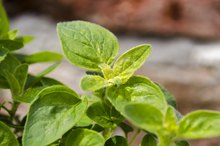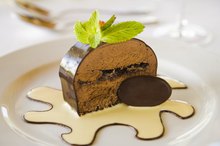How Much Hibiscus to Lower Blood Pressure?
Approximately one out of every three adults in the United States has elevated blood pressure, a condition called hypertension, the Centers for Disease Control and Prevention reports. Though numerous antihypertensive prescription medications are available, treatment with a natural supplement called hibiscus may also help lower your blood pressure levels. Dried flowers from the Hibiscus sabdariffa plant are usually prepared as a medicinal tea.
Precaution
The amount of hibiscus you should take to lower your blood pressure levels may vary depending on your weight, age and health status. Your primary medical provider is the only person who can recommend the appropriate dose of hibiscus for your condition. For this reason, consult a doctor before taking hibiscus as a treatment for hypertension.
Recommended Dosage
The Best Dosage of Passionflower for Treating Anxiety
Learn More
To lower blood pressure, health professionals with the University of Michigan Health System recommend infusing 1 cup of water with 1 to 2 teaspoons of dried hibiscus flowers. You can consume up to three cups of hibiscus tea daily. Alternatively, drinking one 500 milliliters serving of hibiscus tea each day before breakfast may also help to lower your blood pressure levels.
Overall Safety
Hibiscus is usually well tolerated when used as directed. Despite the potential health benefits associated with hibiscus, treatment with this herb isn't appropriate for everyone. The safety of hibiscus has not been evaluated in children and pregnant or lactating women. For this reason, children and expectant or breast-feeding mothers should avoid using hibiscus without first consulting a doctor.
- Hibiscus is usually well tolerated when used as directed.
- For this reason, children and expectant or breast-feeding mothers should avoid using hibiscus without first consulting a doctor.
Medication Interactions
Holy Basil & Blood Pressure
Learn More
Consuming hibiscus before taking a dose of acetaminophen may increase the rate at which your body metabolized this pain-reliever. Until more is known about this medication interaction, avoid taking hibiscus in conjunction with acetaminophen.
Related Articles
References
- University of Michigan Health System; Hibiscus
- University of Pittsburgh Medical Center; Hibiscus
- Centers for Disease Control and Prevention; High Blood Pressure Facts
- University of Maryland Medical Center; Hypertension; Steven D. Ehrlich
- Aziz, Z.; Wong, S.; and Chong, N. Effects of Hibiscus sabdariffa L. on serum lipids: a systematic review and meta-analysis. J Ethnopharmacol. 2013 Nov 25;150(2):442-50. doi:10.1016/j.jep.2013.09.042.
- Mozaffari-Khosravi, H.; Jalali-Khanabadi, B.; Afkhami-Ardekani, M. et al. The effects of sour tea (Hibiscus sabdariffa) on hypertension in patients with type II diabetes. J Hum Hypertens. 2009 Jan;23(1):48-54. doi:10.1038/jhh.2008.100.
- Mozaffari-Khosravi, H.; Jalali-Khanabadi, B.; Afkhami-Ardekani, M. et al. Effects of sour tea (Hibiscus sabdariffa) on lipid profile and lipoproteins in patients with type II diabetes. J Altern Complement Med. 2009 Aug;15(8):899-903. doi:10.1089/acm.2008.0540.
- Serban, C.; Sahebkar, A.; Ursoniu, S. et al. Effect of sour tea (Hibiscus sabdariffa L.) on arterial hypertension: a systematic review and meta-analysis of randomized controlled trials. J Hypertens. 2015 Jun;33(6):1119-27. doi:10.1097/HJH.0000000000000585.
- Wisetmuen, E.; Pannangpetch, P.; Kongyingyoes, B. et al. Insulin secretion enhancing activity of roselle calyx extract in normal and streptozotocin-induced diabetic rats. Pharmacognosy Res. 2013 Apr-Jun; 5(2): 65–70. doi:10.4103/0974-8490.110520.
- Wahabi HA, Alansary LA, Al-Sabban AH, Glasziuo P. The effectiveness of Hibiscus sabdariffa in the treatment of hypertension: a systematic review. Phytomedicine. 2010 Feb;17(2):83-6.
Writer Bio
Rae Uddin has worked as a freelance writer and editor since 2004. She specializes in scientific journalism and medical and technical writing. Her work has appeared in various online publications. Uddin earned her Master of Science in integrated biomedical sciences with an emphasis in molecular and cellular biochemistry from the University of Kentucky College of Medicine.









